This post may contain affiliate links that at no additional cost to you, I may earn a small commission.
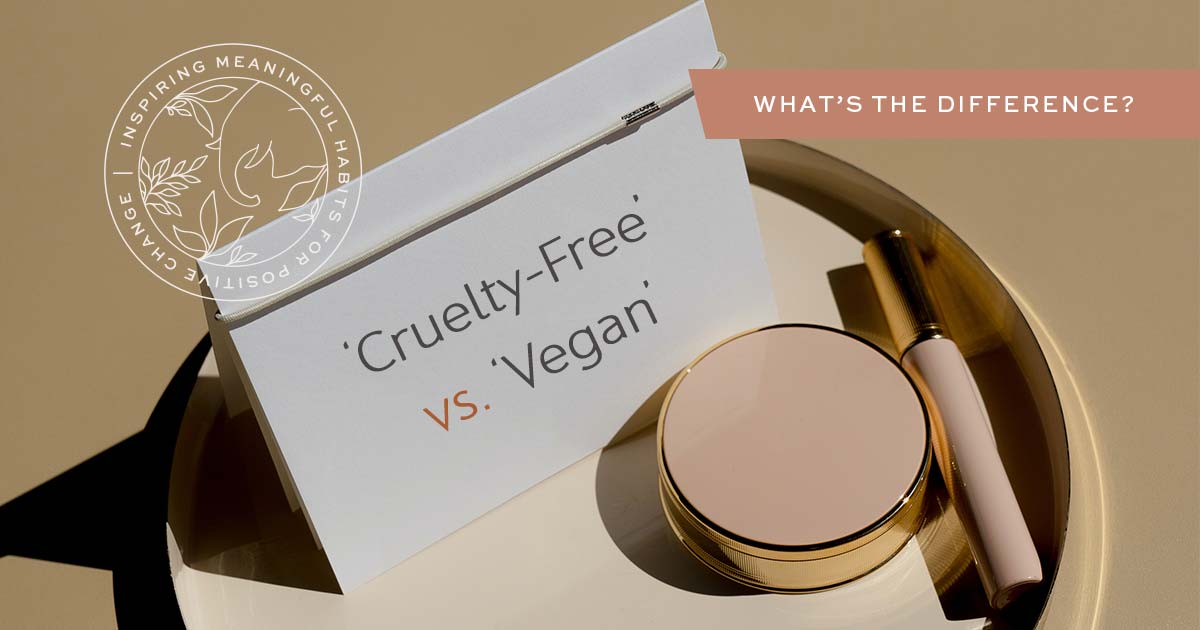
Animal ‘Cruelty-Free’ is a term used to describe cosmetics, personal care, and household cleaning products as not tested on animals.
‘Vegan’ is defined as products that do not contain any animal-derived ingredients or by-products.
Therefore, ‘Cruelty-Free’ does not always mean ‘Vegan.’ And vice versa.
Quick Notes:
- Cruelty-Free, but not Vegan means it’s not tested on animals, but it contains animal ingredients
- Vegan but not Cruelty-Free means it doesn’t contain animal ingredients, but it was tested on animals
- Both Cruelty-Free and Vegan means it wasn’t tested on animals, and it doesn’t contain animal ingredients
- Neither Cruelty-Free nor Vegan means it’s tested on animals and it contains animal ingredients
Examples:
It might be easier to understand the difference between Cruelty-Free and Vegan cosmetics if I provided some real-life examples.
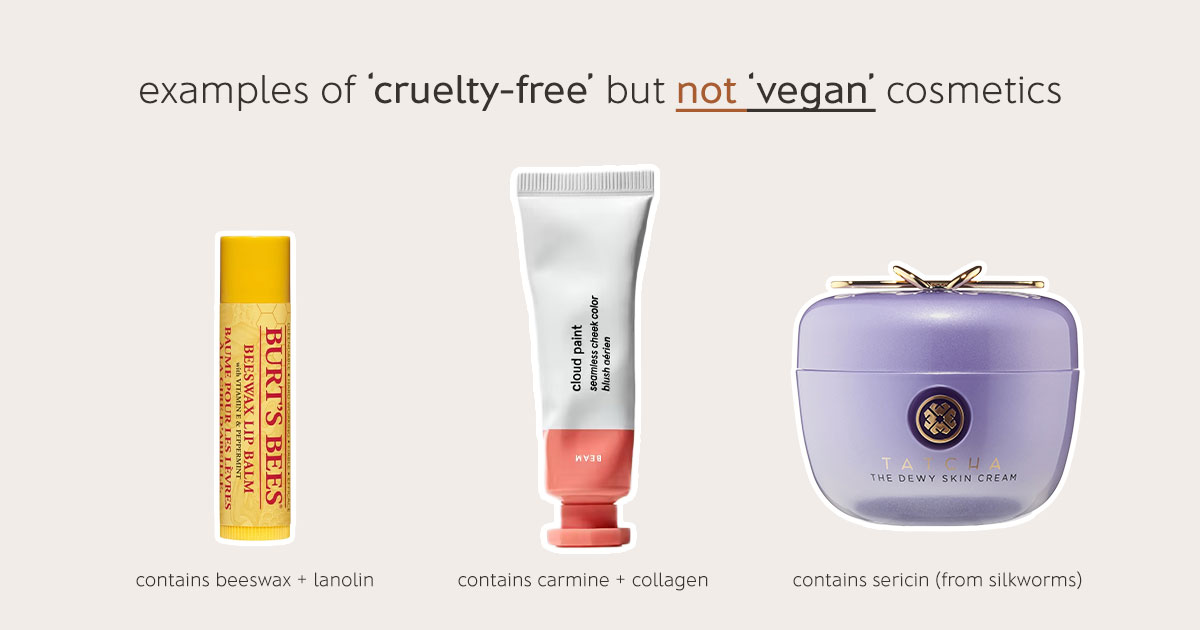
Examples of Cruelty-Free cosmetics that are NOT Vegan:
Burt’s Bees is cruelty-free (Leaping Bunny certified) and has been verified as not allowing any of its products or ingredients to be tested on animals. However, most of their products, like their Lip Balms, contain beeswax and lanolin, which are derived from animals. Making their products NOT vegan.
Glossier doesn’t test on animals (Leaping Bunny certified), but some of their products, like the Cloud Paint, contain carmine, which is derived from crushed-up beetles. Collagen is also listed as an ingredient, but the source is not disclosed, so it can possibly be from animal sources. This means Glossier’s Cloud Paint is cruelty-free, but not vegan.
Tatcha is another brand that claims to be cruelty-free while selling some products that contain animal-derived ingredients, including their best-selling Dewy Skin Cream, which contains sericin derived from silkworms.
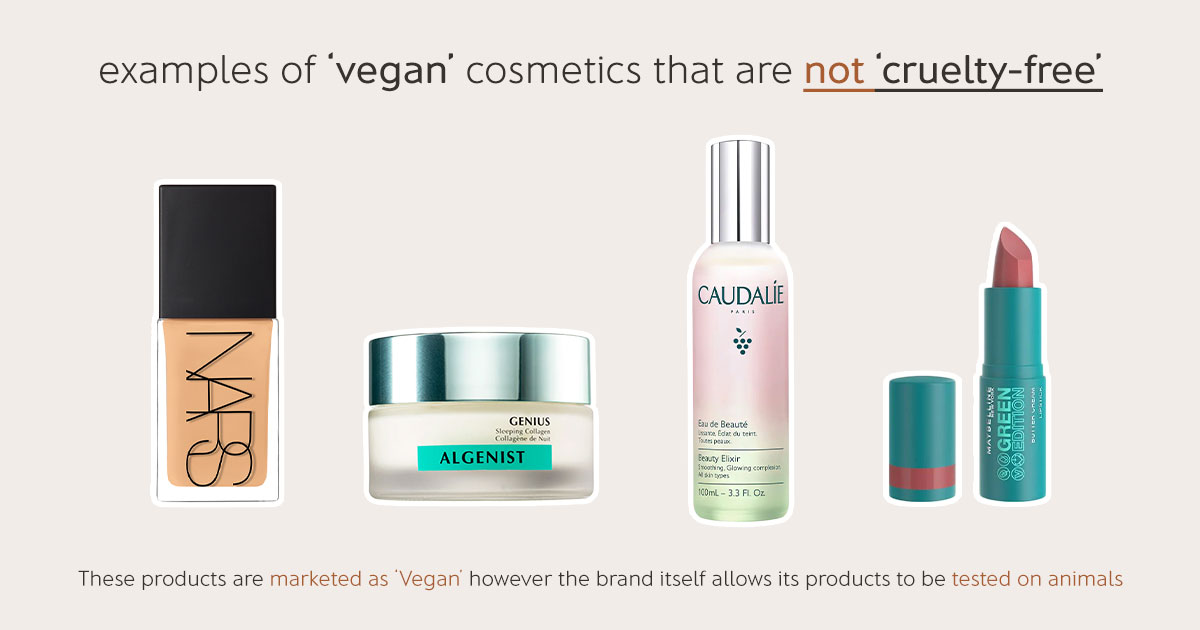
Examples of Vegan cosmetics that are NOT Cruelty-Free:
NARS is not a cruelty-free brand since they announced their products are for sale in China, and they consented to have their products tested on animals as required by China’s animal testing laws. But that hasn’t stopped NARS from marketing and labeling some of its product offerings as ‘Vegan Formula’, including its best-selling foundation. This is an example of a ‘vegan’ cosmetic product that is NOT cruelty-free.
Algenist has a line of skincare products that are marketed as containing Vegan Collagen. However, Algenist’s animal testing policy states they allow their products to be tested on animals when required by law, regulation, or a governmental authority. Although Algenist offers a collection of vegan skincare made from a plant-based alternative to animal-derived collagen, Algenist is NOT a cruelty-free brand.
Caudalie claims most of its products are vegan except for some containing beeswax or honey. However, Caudalie admits it sells its products in China, where as they put it, “authorities may impose random animal testing.” Caudalie products may be Vegan, but they’re not Cruelty-free.
Maybelline recently launched a vegan makeup line called Green Edition, where they claim none of their formulas from this line contain animal-derived ingredients. But Maybelline is not a cruelty-free brand because they allow their products to be tested on animals when required by law.
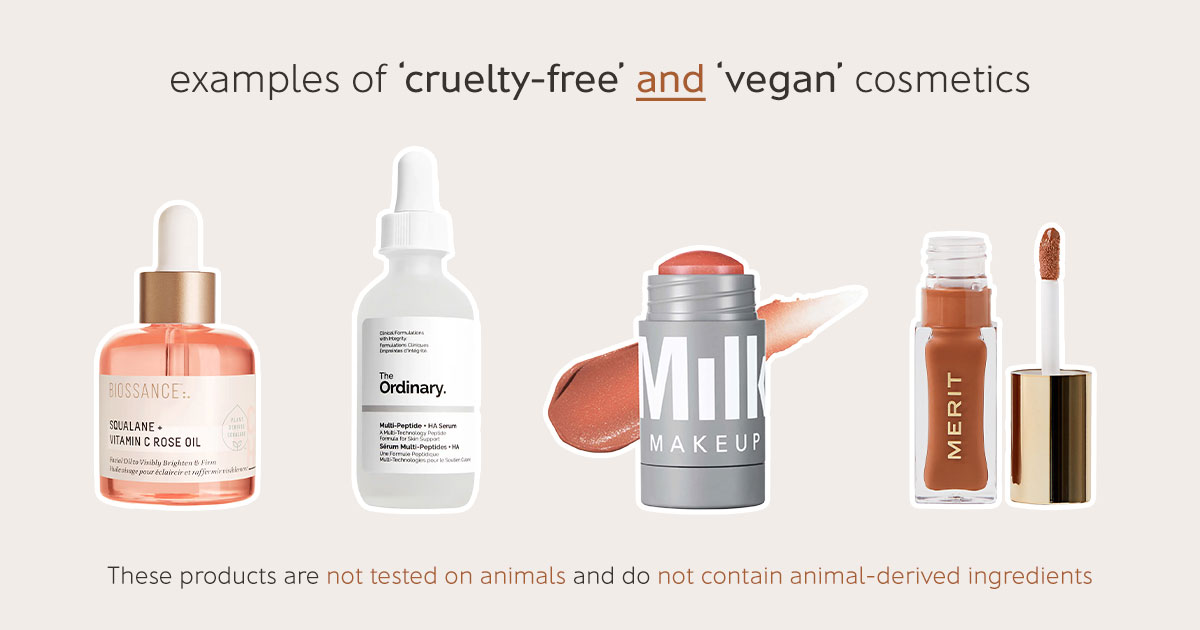
Examples of Vegan AND Cruelty-Free Cosmetics:
Biossance, The Ordinary, Milk Makeup, and Merit are all cruelty-free brands where none of their products or ingredients are tested on animals. And all of these brands are 100% vegan, meaning none of their product offerings contain any animal-derived ingredients or by-products. These brands are both Cruelty-Free AND Vegan.
Let’s Dig Deeper:
Now you know the main difference between products labeled as Cruelty-Free and Vegan.
Here are some commonly asked questions I get when I mention something is Cruelty-Free or Vegan.
But how can something be called cruelty-free but contains animal ingredients?
Because there’s no legal or standard definition for using the term Cruelty-Free, according to the FDA, “The unrestricted use of these phrases by cosmetic companies is possible because there are no legal definitions for these terms.”
The explanation I’ve provided above is how the label ‘Cruelty-Free’ is generally used by companies, manufacturers, and consumers, based on my research in the field for the past 8 years.
But I understand why some ethical consumers are confused and frustrated when brands call themselves cruelty-free but use animal products.
It seems counterintuitive that these two terms, Cruelty-Free and Vegan, can be mutually exclusive.
Know that, at the end of the day; companies are using these labels as marketing terms. Without a standard or legal definition of the terms, they can use them in whichever way they like to get you to buy their products.
Cruelty-Free Certifications and Vegan Brands
A common misunderstanding I get from readers is assuming Leaping Bunny-certified brands are vegan. This is not the case.
Leaping Bunny investigates only the brand’s animal testing policy. It’s thorough and can be a lengthy process. But they don’t look into whether brands use vegan or animal-derived ingredients. As a result, many Leaping Bunny-certified brands are not vegan.
Vegan ≠ Clean, Sustainable, Ethical Products
Another misconception I hear is Vegan products mean it’s clean, sustainable, or ethically made. This is only sometimes true.
As an alternative to animal ingredients, companies can choose from various components obtained from plants, minerals, or synthetically.
The term ‘Vegan’ does not specify the type of non-animal-derived ingredients brands choose to use. It also says nothing about how they were made, grown, extracted, or mined. In addition, other factors like environmental impact, sustainable manufacturing, and ethical working conditions are not factored into the umbrella term for ‘Vegan’ cosmetics.
Vegan Brand vs. a Vegan Product
Some consumers also get mixed up between an entirely vegan brand and one offering some vegan options.
It also doesn’t help that some brands claim to be 100% vegan but then sell a one-off item that isn’t.
For example, many household cleaning brands claim their formulas are 100% vegan but sell wool dryer balls. Or haircare brands state they’re 100% vegan but then offer hair brushes made with animal bristles.
Here’s a tip, if you see a brand advertise its products as Vegan, don’t assume all of its products are vegan. It may be that one item that is vegan.
If you wish only to support entirely vegan and cruelty-free brands, check out this list.
Cruelty-Free Brands and Parent Companies
Another note I ought to mention is the discussion on whether brands that are owned by an animal-tested parent company should still be considered cruelty-free or not.
For example, NYX and Urban Decay are owned by L’Oreal, a parent company that is not cruelty-free. Some cruelty-free consumers may choose to continue to purchase from NYX and Urban Decay as they hope it will convince the parent company, L’Oreal, to stop testing on animals.
Even though NYX and Urban Decay may not test on animals, some ethical consumers may not consider them cruelty-free because of their affiliation with animal-testing L’Oreal. And believe that the money spent on those brands will go into the pockets of L’Oreal, and, therefore, indirectly fund more animal tests administered by L’Oreal.
This is always a touchy subject, and I feel there’s no right or wrong way to go about this. There are many different factors to consider when deciding which ethical brand to support and buy from. I always encourage others to do what feels right to them.
Summary
To bring it all together, although there is no legal or standard definition for the terms ‘Cruelty-Free’ and ‘Vegan’ in cosmetics, personal care, and household cleaning products, the two terms are generally used as follows:
‘Cruelty-Free’ = Not tested on Animals.
‘Vegan’ = No animal-derived ingredients or by-products.
It’s possible for a product to be cruelty-free but not vegan or the other way around.
While it’s important to know the differences between the terms, you’ll also want to know the difference between Cruelty-Free Certifications, Parent Company Animal Testing, and other Clean, Sustainable, Ethical marketing claims to make the best informed and ethical choice that fits your values and ethics.







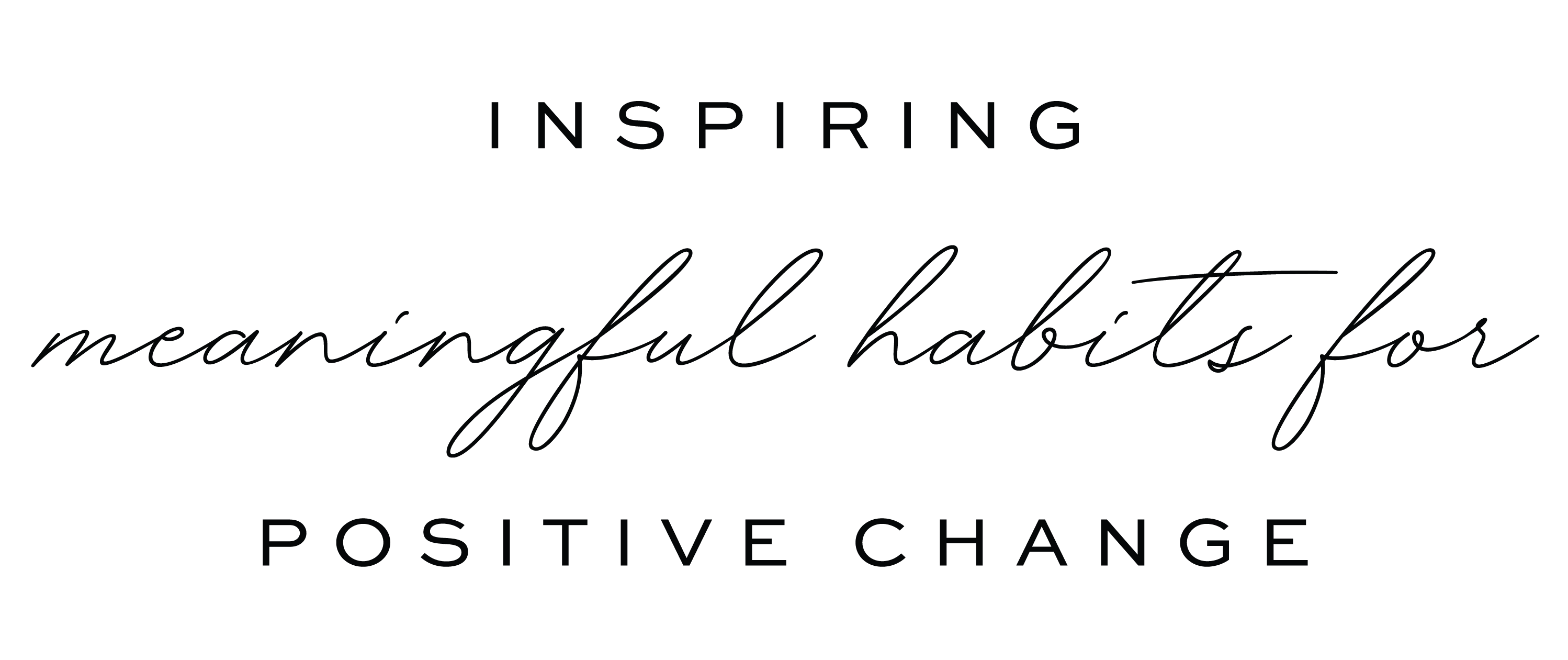
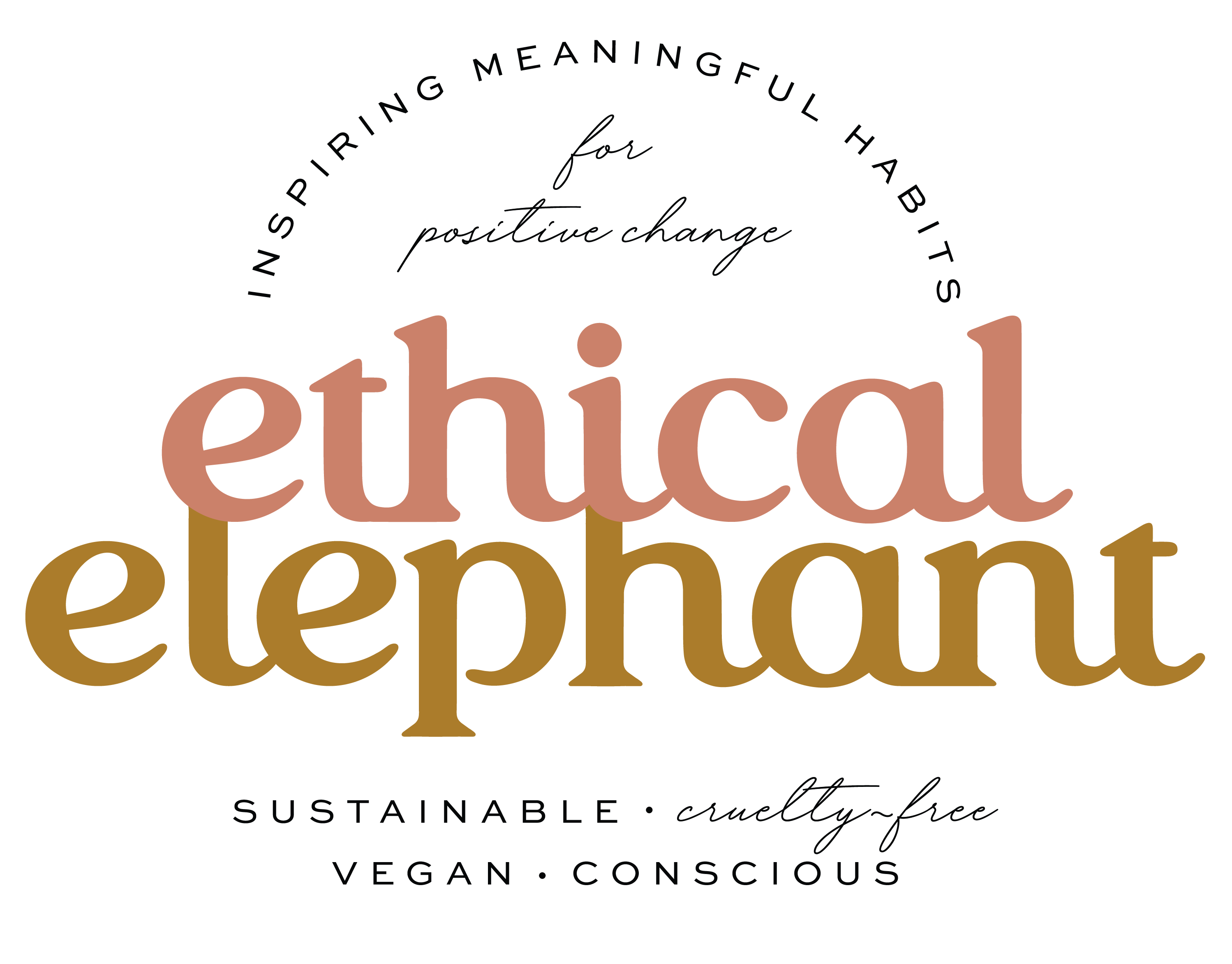
32 thoughts on “Cruelty-Free vs. Vegan: Understanding the Differences and Why They Matter”
Hello,
I am writing in hopes that you please revise this website.
Any product which is certified vegan, must not have been tested on animals, pre- OR post-market. In other words, neither the producer, nor various 3rd-party suppliers, are permitted to test vegan products on animals. Juice Beauty, for instance, is 100% certified vegan. That means that they would not sell to any supplier, a country such as China, for instance, because its government would require animal testing.
So, to sum it up, you can have a cruelty free company whose products contain animal byproducts. But vegan products are always cruelty free.
Hi Jamie,
Yes, *certified* vegan products are both not tested on animals and do not contain any animal ingredients.
But not all vegan products are *certified*. To become certified is a voluntary process that companies are not mandatory to undergo in order to label their products as “vegan”. If cosmetic companies wish to become *certified* vegan, then they must go through the process and register their products with an accompanying organization like Vegan Society, Vegan Action, or PETA. And once approved, these *certified* vegan products are deemed as not tested on animals AND do not contain animal products.
This is a guide on how the cosmetics industry generally uses the term “cruelty-free” and “vegan”. And I’ve provided two solid real-life examples of L’Oreal and Garnier claiming their products are “vegan” when in fact, these two beauty brands DO test on animals.
I get what you’re saying and agree with you but unfortunately, this isn’t how the cosmetics industry are using the labels “cruelty-free” and “vegan” and so the point of this post is to educate ethical shoppers so that they don’t get duped by brands like L’Oreal and Garnier who are trying to pass their products off as being “vegan” when they’re not since they DO currently test on animals.
And also, Juice Beauty isn’t a certified vegan brand. Two of their products contains organic honey and/or beeswax and are not suitable for vegans.
Juice Beauty is certfied cruelty-free but not certified vegan, as you claimed.
Hi Vicky,
Our company is interested in getting Cruelty free certification through PETA, but it have been very difficult the communication with them, it takes too long to get replay. Do you know somebody that have go through this process?
Can you be vegan but use cruelty-free ingredients?
Yes, vegans are always cruelty-free!
If you haven’t already, publishing a post to describe vegan, vs. cruelty free vs. eco-friendly may also be another topic. Because sometimes you can have a product, like soap, that contains potash, which is just ash from burned wood, and oil (even a vegan oil). So in this case, the production of potash would not necessarily be eco friendly. It’s releasing carbon dioxide (CO2) into the atmosphere. Another example is with palm oil. Palm oil in itself is not bad for the environment. But clearcutting forests to produce palm oil is big business. And that stuff is found in a lot of products. Even though they can be vegan and cruelty free.
I want to know.what the different between “No Animal derived ingredients or No Animal by products” and “No Animal by products” is “No Animal by products” mean it’s maybe contain animal derived like glycerin or vitamins